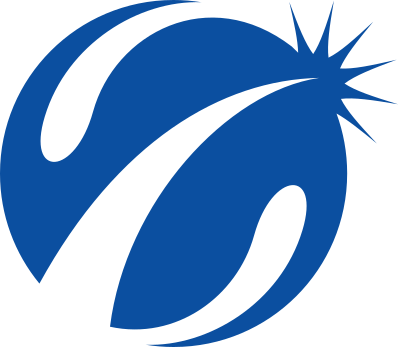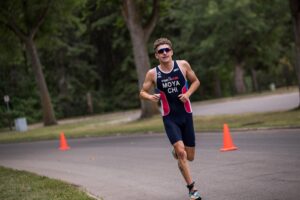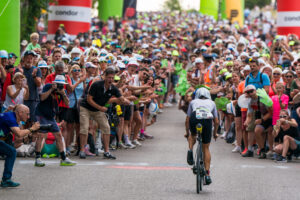Linsey Corbin goes Purple Patch

We recently learned that Matt Dixon of Purple Patch coaching has been selected to be the new coach of Linsey Corbin and we wanted to find out more about this decision and her process of selecting a coach. Until recently Linsey Corbin was guided by Lance Watson of Lifesport Coaching, but after Hawaii Linsey switched to Dixon.
ST: When people hear about the switch after Hawaii they will most likely assume that your decision to switch had to do with your race in Kona. Is that the reason?
Linsey: The coaching change wasn't due to my poor performance in Kona, it was ultimately a combination of reasons. Most importantly, I have big dreams in triathlon (perhaps too big) and I am not one to sit around and wonder. I thought finding a coach that had similar beliefs as myself would help me pursue these dreams. I am not one to sit around and be complacent, so I took a leap of faith and started searching out a new coach.
ST: But why the change?
Linsey: Well, I had been back and forth all year about switching coaches. Lance Watson has been my coach since 2006 – the only triathlon coach I had ever had. He essentially taught me everything I know. I left Lance with a tremendous platform and knowledge of triathlon training and racing. However, in the back of my head, during all of 2009 I wanted something more. All year I felt I was training harder than anyone else and showing up to races with mediocre results. It became really cyclical. The more mediocre I would do in a race, the harder I would come back and work, only to keep falling further and further down the ladder. It was really frustrating. To top it off, by the time Kona came around I had battled a few serious injuries, was severely iron deficient, as well as immune deficient with Staph infection.
ST: And how did you pick your new coach?
Linsey: I did a bit of research on the internet and talked to a few of my mentors in the sport about what some good coaching options were. I also made a list of what my dream coach would be like as well as what I didn't want in a coach. I asked a ton of questions to a few coaches in particular trying to find a good fit. Chris Lieto has always been a big help for me. I had seen what great results Chris (as well as Tyler Stewart & Matt Lieto) was having with Matt Dixon and purplepatch fitness and was intrigued. Matt has a philosophy that is the complete opposite of what most pro triathletes are following. He is all about quality over quantity. Training smarter not harder. The first thing he told me was that anyone can train hard. It doesn't take talent to work hard. But not anyone can learn to take time to recover. To have the "courage" to sit back and recover is something new for me.

ST: Linsey, any suggestions for age groupers and how they should select a coach?
Linsey: My recommendation would be to ask around. I asked Peter Reid and Chris Lieto who they thought would be good options. I also looked at who was doing better than me and found out who they were coached by. After that, I gathered a list of 3-4 options and started to send out some emails and make calls. When I first worked with Lance, I made the mistake of not asking a single question. I knew he was a good coach (Lisa Bentley, Chris Lieto, Brent McMahon, Simon W.), he said he would coach me and I said ok. I didn't ask about payment, philosophy, what my workouts would be like, etc…. Now that I have a bit more experience I had ton of questions to ask. Such as: what is your training like, what do you think you can do for me, how much time can you commit to me, is this plan tailored to my needs, how can you help my swim (it needs it!), what do you think about run training, how will you help my cycling get back on track, can you help me train indoors in the winter, what about training camps, I need a mental coach/advice – can you help with that, do you think you can help me win? etc. etc. etc…. This is a very personal list, but I essentially wrote down a list of needs and wants and what a dream coach would be like. I think for amateurs there are all sorts of options out there. Just because a coach costs a lot of money doesn't mean anything. I think local coaches if you are on a budget are a great option. Matt Seeley coaches a lot of local Montana athletes and does an amazing job. He charges $10 a week.
ST: So who were your final candidates?
Linsey: In the end, I really liked Phil Skiba, Matt Dixon, and I think Paulo has some really good philosophies as well. The most important part was finding someone I had a good connection with and that could be a friend outside of sport, but also get my ass in gear with training when need be. I felt Matt could do all of the above – so we are all set!
ST: Thank you for your time.
Linsey: Let me know if you have more questions – I found it an interesting process and really enjoy helping others with it.
ST: Well Matt, how about a closing comment from you?
Matt Dixon: It is rare that, as a coach, you begin to work with an athlete and so quickly you feel you are both heading in the same direction. Linsey and I have been able to identify her 'north-star' in triathlon and understand the program and path to get there. It will be a journey of progression, but it is an easier path when you can stand side by side with each other and know you are both aligned on the route to get there. I felt Linsey was very fit when I began coaching her, but not fresh. In six weeks before IM Arizona we managed to rest her and stay sharp enough to perform at Arizona. There was no magic in the training program, apart from how little she had the courage to do and how she was willing to follow the plan. Training hard is easy, recovery takes courage and confidence. She adapted to the philosophy so well in a six week block, where can we go from here? I am excited to see. She is a special person and a great athlete that I think will continue to rise in the sport.







Start the discussion at forum.slowtwitch.com